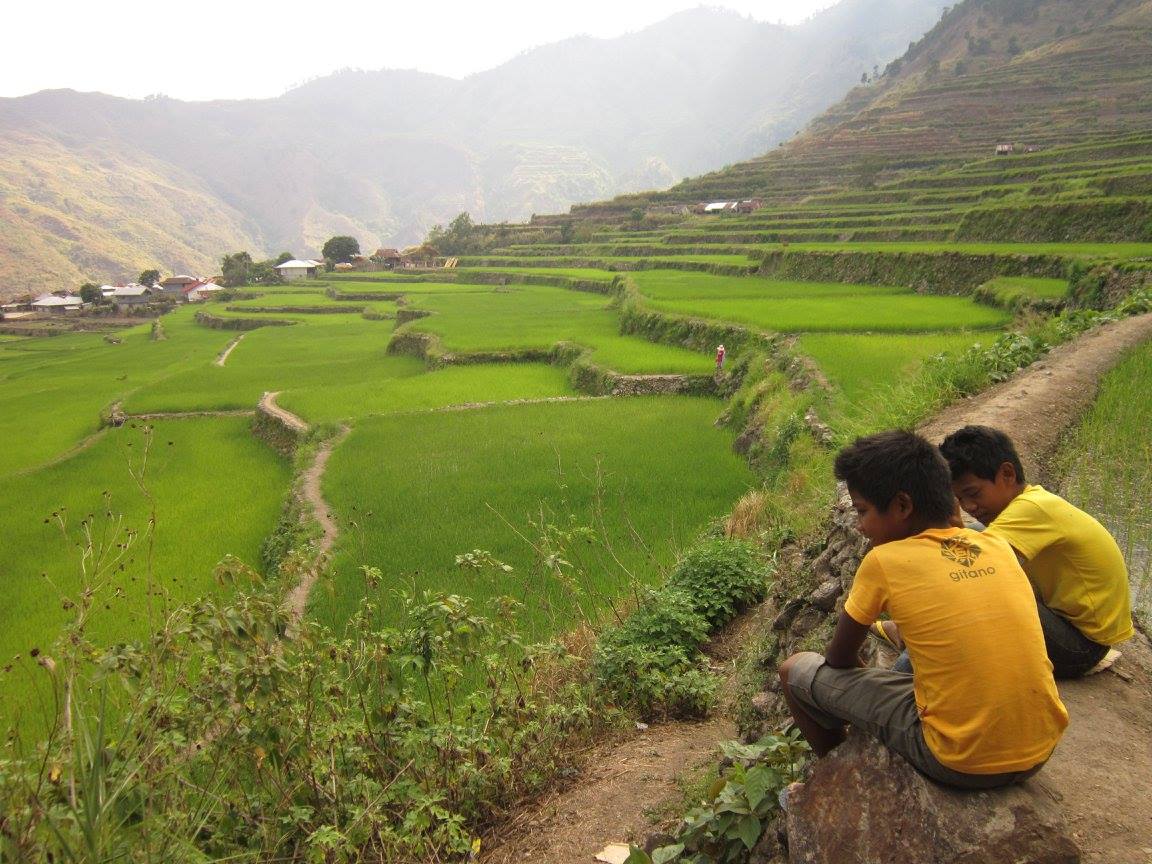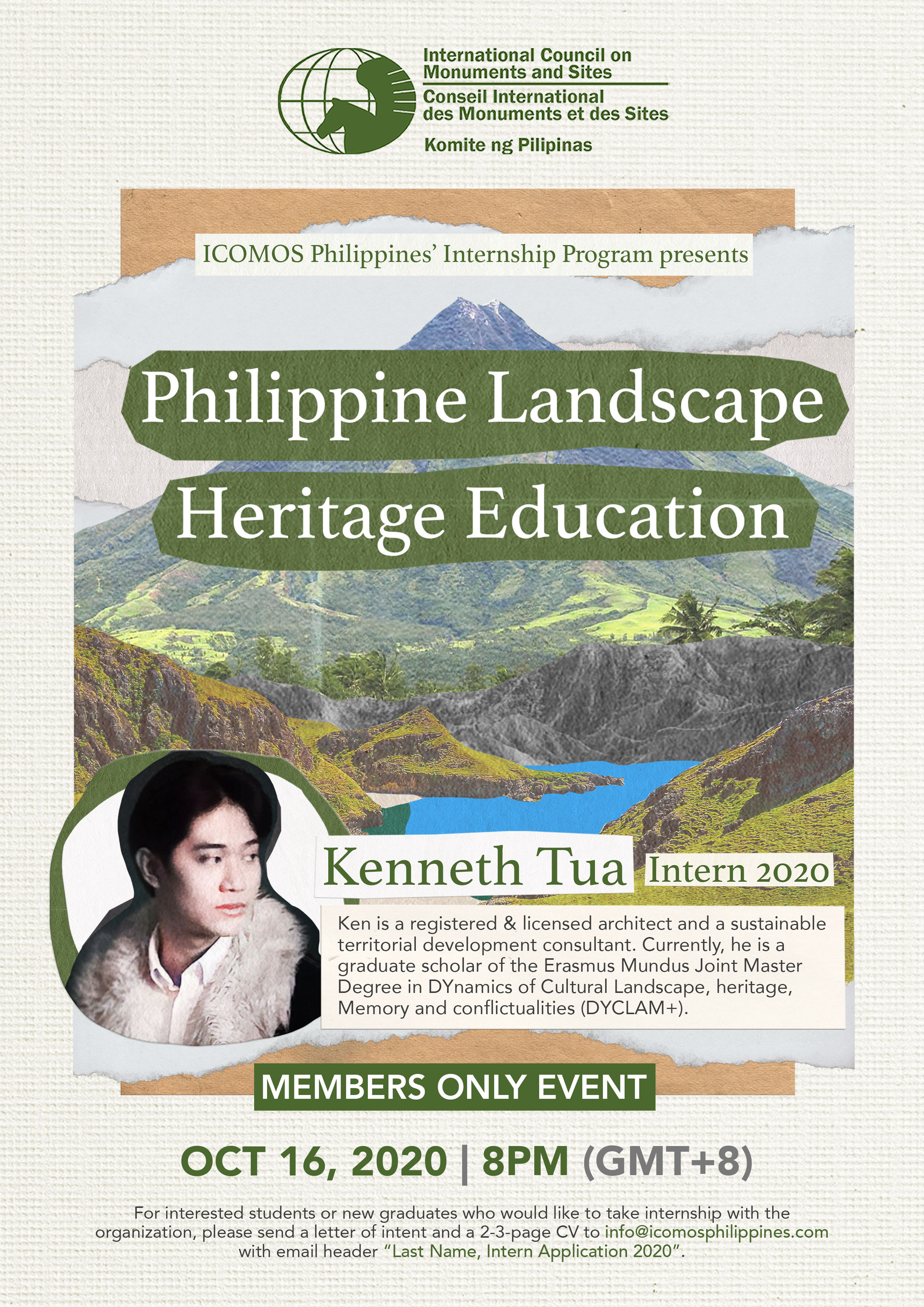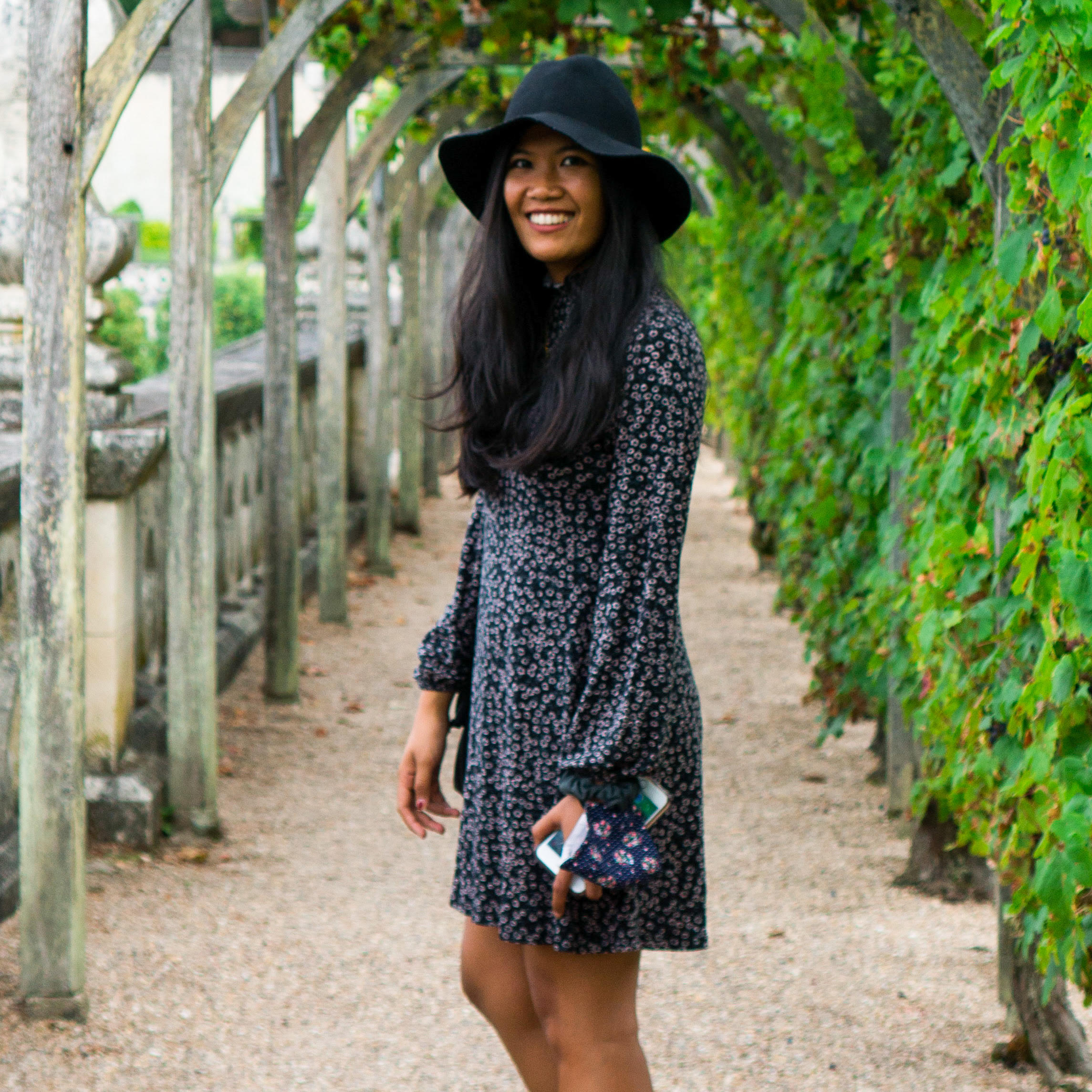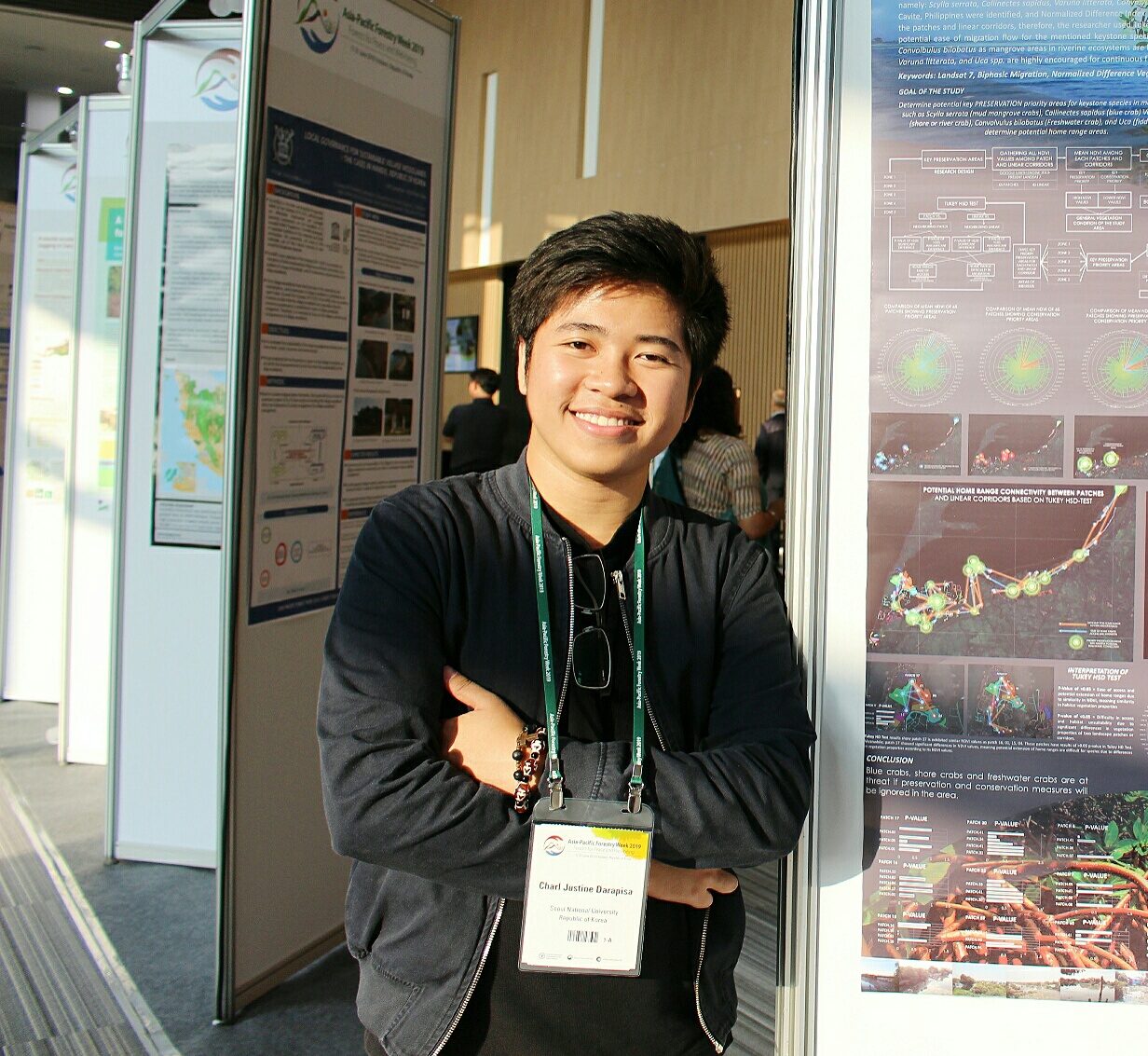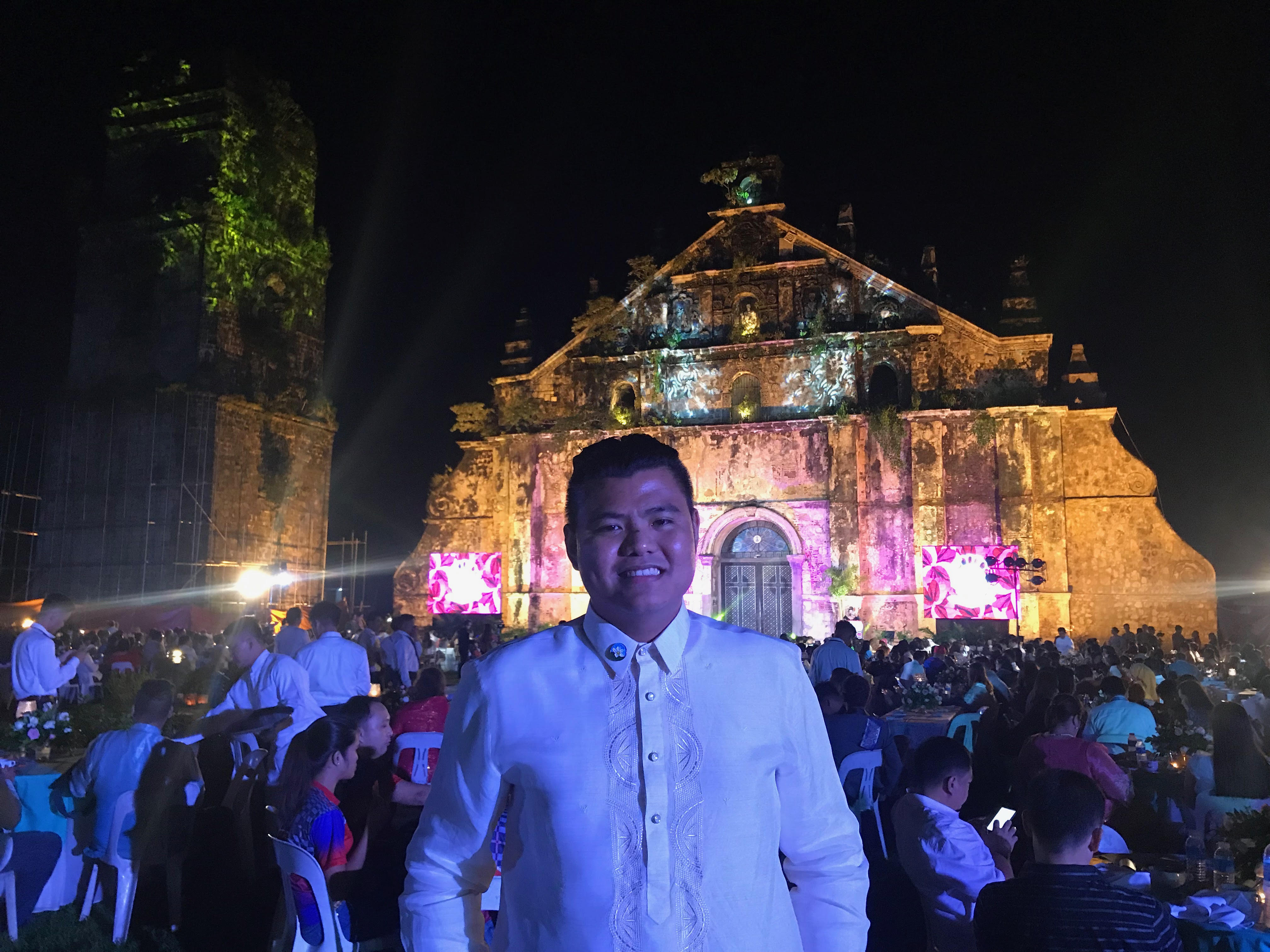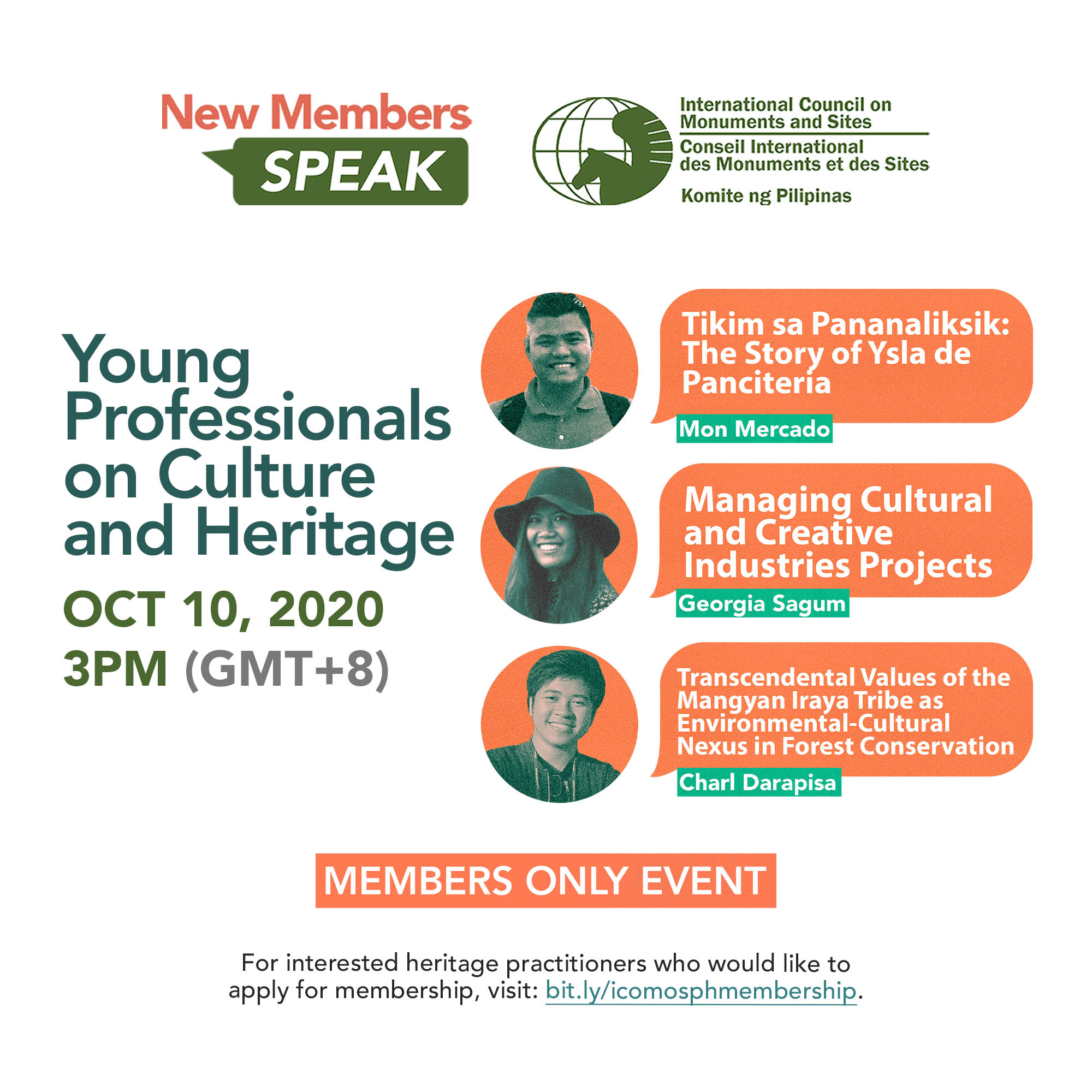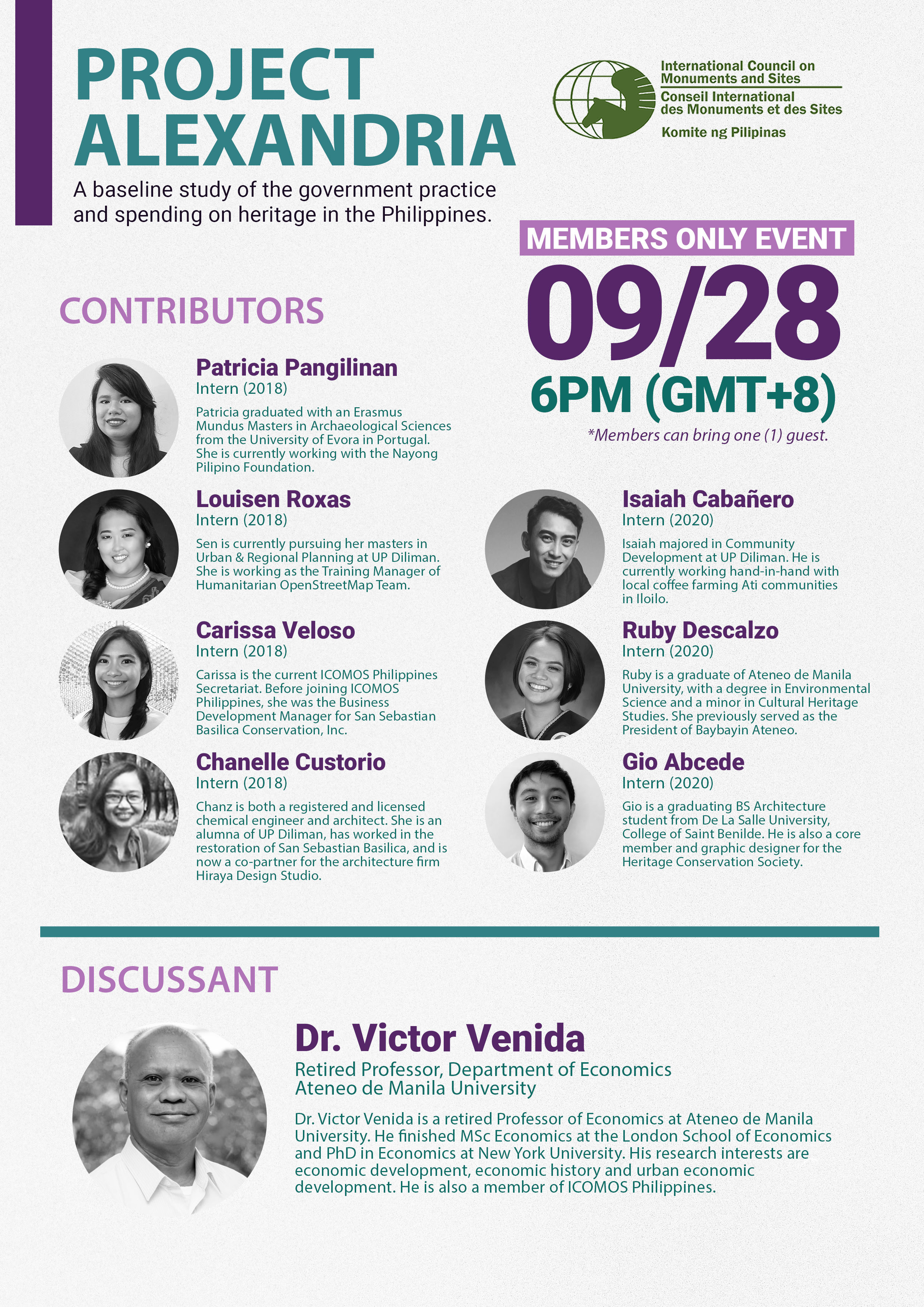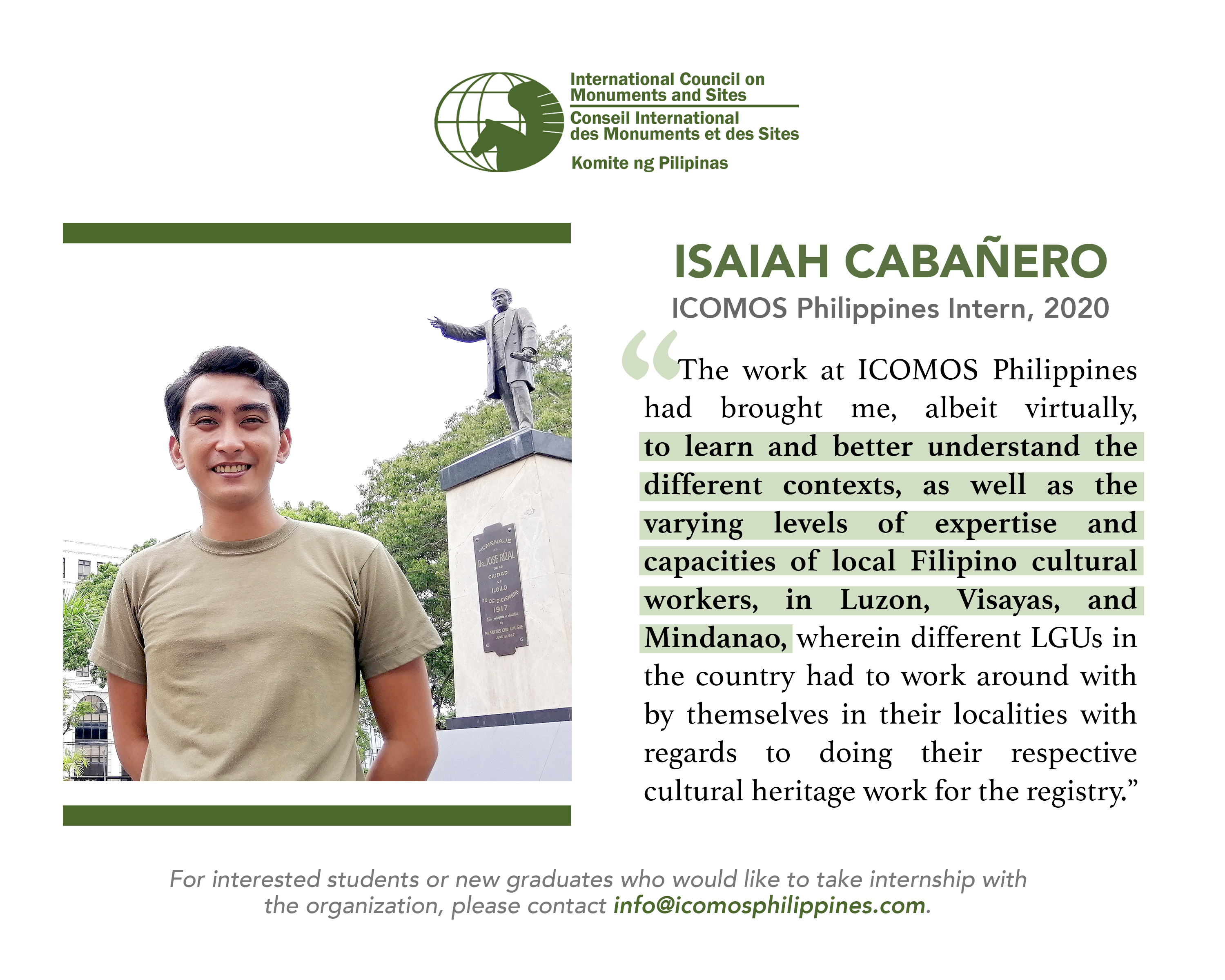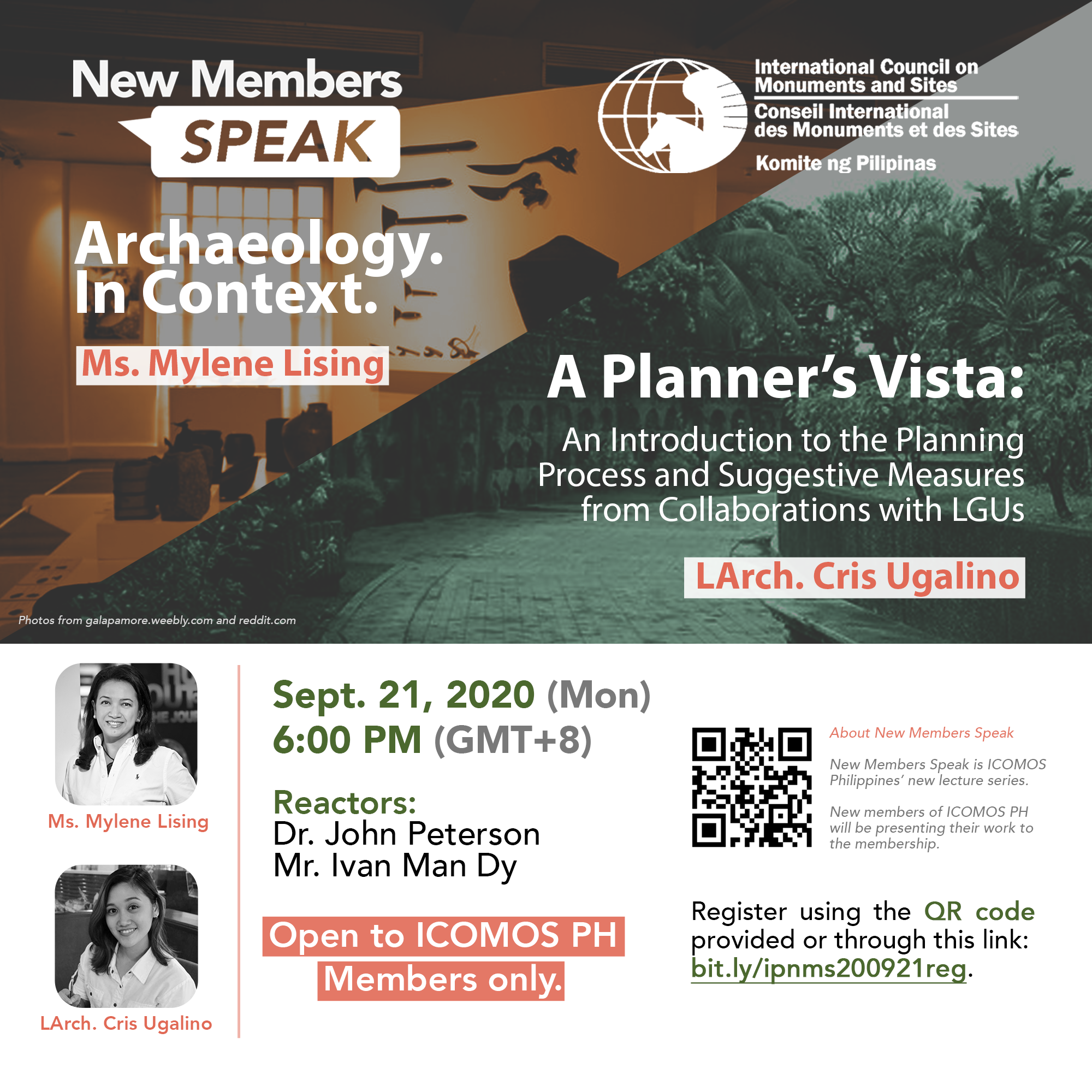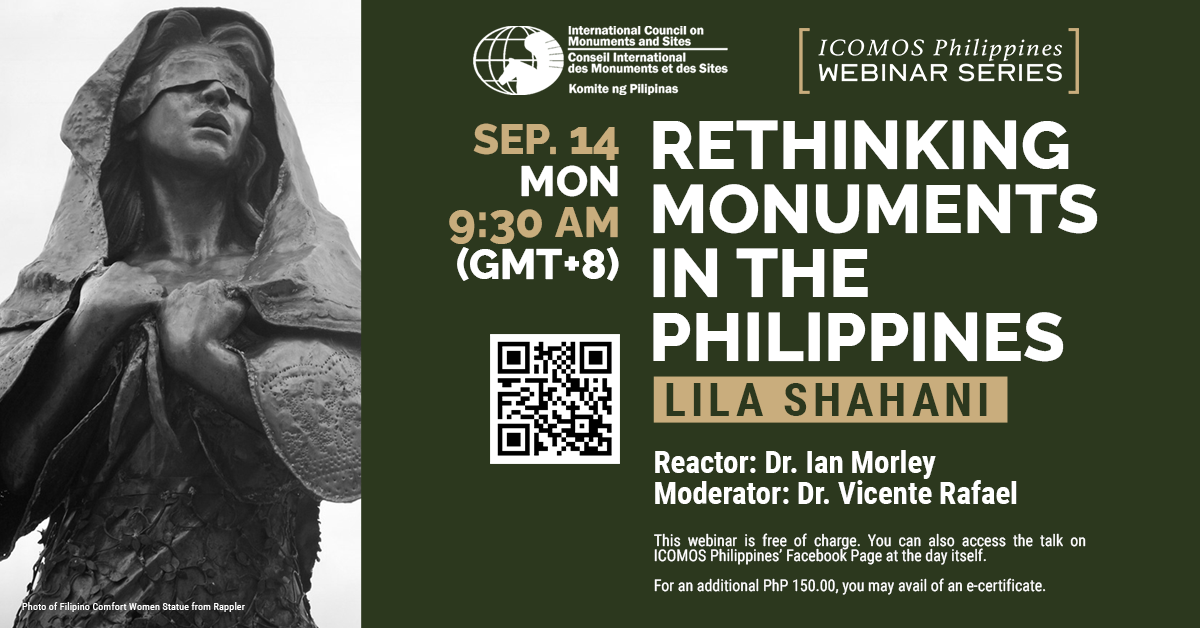Kenneth Tua, Research Intern of ICOMOS Philippines for 2020, did a baseline study of the preparedness of Landscape Architecture curricula in the Philippines for the specialization of Landscape Heritage Conservation (LHC). Courses from four (4) Philippine universities were reviewed and thematic areas of study were proposed patterned from identified programs of UNESCO Chairs for Heritage and from other similar programs on cultural landscapes that exemplify course concentrations significant to the curriculum integration of the specialization of LHC. The study also provided a joint SWOT – PESTEL analyses to support the preparation of the ‘Knowledge, Skills, and Abilities’ to be obtained by the students from the
LHC specialization.
The study entitled “PHILIPPINE LANDSCAPE HERITAGE EDUCATION: Review of the preparedness of Landscape Architecture curricula in the Philippines for the specialization of Landscape Heritage Conservation (LHC),” was supervised by Philippine members of the International Scientific Committee on Cultural Landscapes, Mr. Gabriel Caballero, MA (Expert Member) and Dr. Susan Aquino-Ong, PhD (Advisory Member). Both advisors are also members of the Philippine Association of Landscape Architects, which is the national association of landscape architects in the country.
Thematic Areas of knowledge conceptualized to understand and manage cultural landscapes in the Philippines
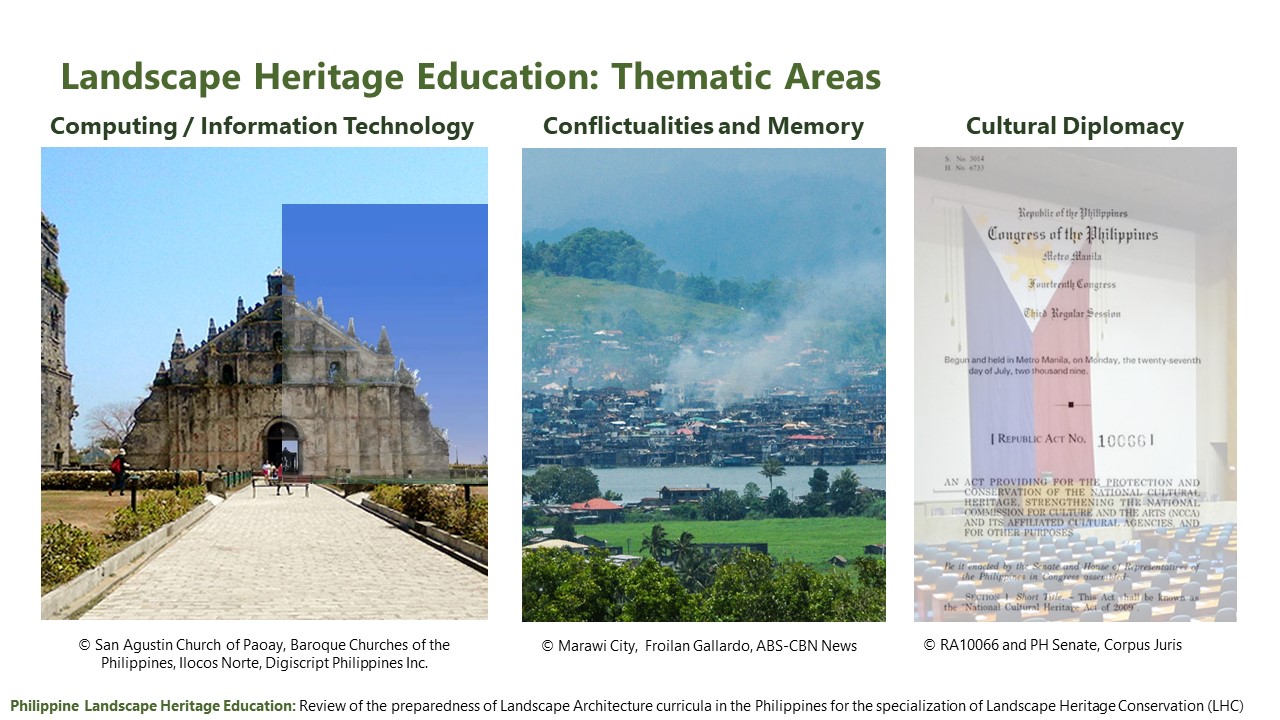
Computing / Information Technology. The intervention of technology in the advancement of heritage conservation is vital in the future of preservation and restoration. The use of interactive websites, mobile applications, new multimedia and transmedia narratives, 2D and 3D photos, ethno-clips for heritage interpretation, content management system (CMS) and social media, 3D scanning, GIS, BIM or 3D reconstructions are the future of precise and detailed documentation and analysis of landscapes and heritage materials.
Conflictualities and Memory. Geopolitical tensions affecting cultural heritage and cultural landscapes are compounded by the complexity of their management due to potential conflicts of interest. Economic externalities and uncontrolled tourism can pose a threat to the integrity of landscapes and eventually lead to a sociological upheaval in the natural and cultural environment.
Cultural Diplomacy. The emergence of national and international awareness of the laws, policies and guidelines governing the landscapes and the natural environment plays a vital part in the protection against private interests and politics. The skills of cultural diplomatic affairs serve an important role in the pro-creation and amendments specificity of heritage and landscape-related laws.
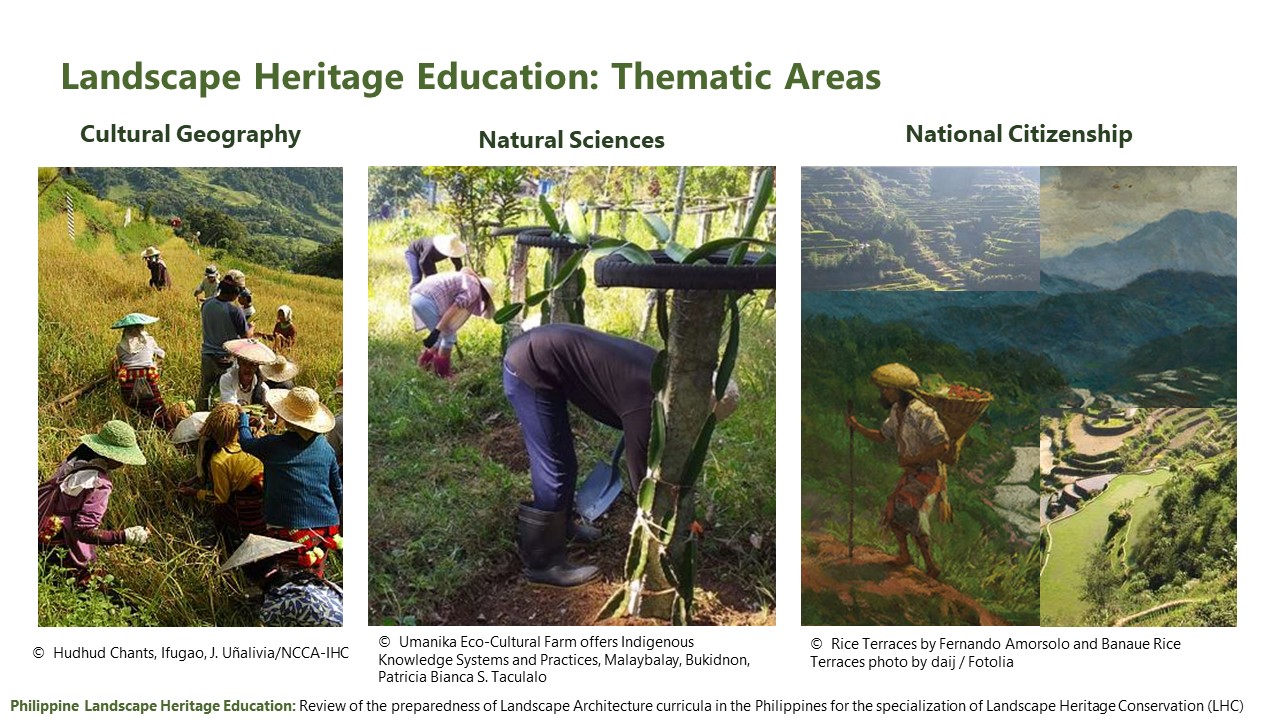
Cultural Geography. The living cultural heritage of local landscapes are inseparable from its meaning, as it faces problems from social and economic developments such as poverty, loss of culture, endangerment of indigenous language, emigration etc., the establishment of development of the territory through heritage encourages the need for harmonious dialogue. This requires both the skills to pre-emptively evaluate projects and formulate management modalities that take into account the “behaviors” of the various stakeholders, not necessarily rational or concerned with guardianship of the values attested.
Natural Sciences. The continuation of the hardscape and softscape design aspects of Landscape Architecture which integrates traditional skills and indigenous knowledge on local and alternative materials retrieved from landscapes. Collaboration with biologists, horticulturists, geologists, local craftsmen and related professions are encouraged to train professionals in the complex and integrated management of landscapes and nature conservation.
National Citizenship. The Philippines is composed of various native language and dialects. It requires interculturality and transdisciplinary when thinking between micro-cultures in Luzon, Visayas, and Mindanao. When understanding the cultural heritage on these specific localities, it is important to familiarize or at least know the basics of various native language and culture. This also calls for the study of prominent figures and icons in Philippine History like José Rizal, Fernando Amorsolo and the likes who prompted early perspectives and valuing in the local landscapes.
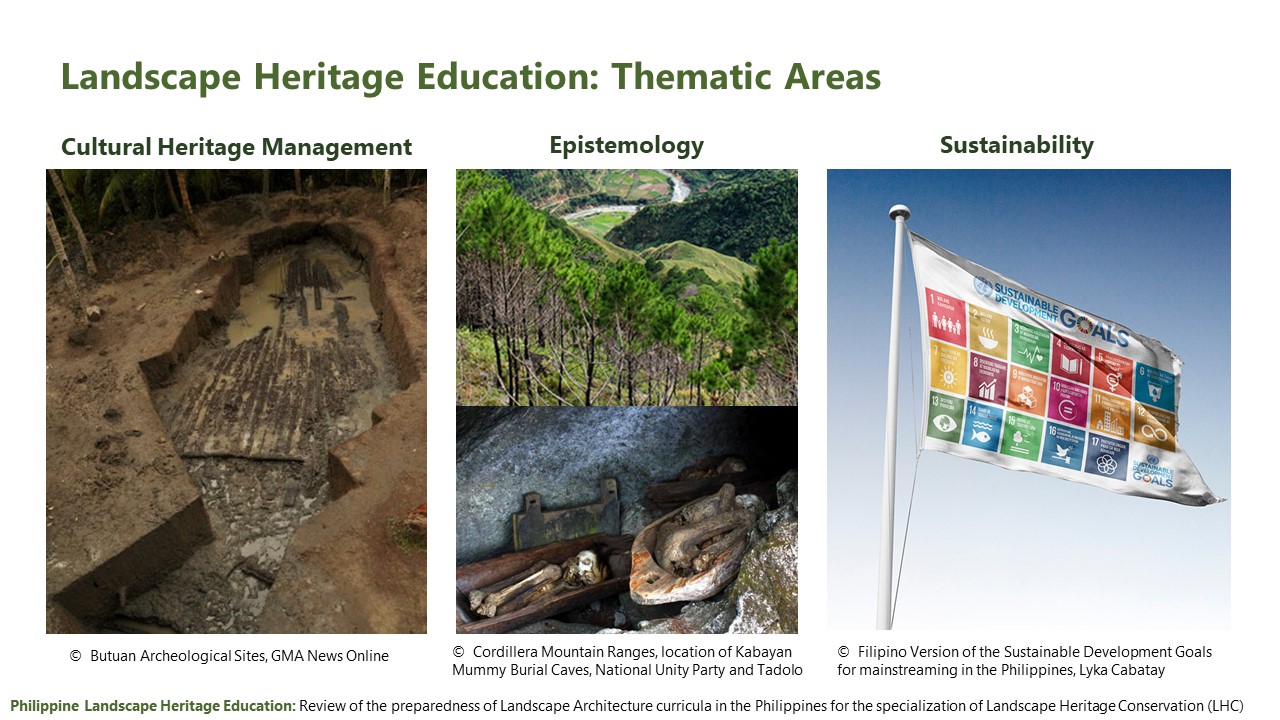
Cultural Heritage Management. The specialization’s focal component which deals with cultural heritage and heritage preservation facets of Philippine landscapes. With the continuing modernization of built and natural landscapes, it is important to strike balance between conserving the physical integrity of the sites and nourishing their educational, historic and cultural values amidst the developing societal industries.
Epistemology. The classical natural sciences and its subsequent extension to the social and behavioral sciences dealing with the origin of history, nature of theories, and investigation of concepts. Further emphasizing heritage through analyzing socio-historical issues and epistemological issues of cultural goods and memory management of landscapes in coordination with conflictualities and memory thematic area.
Sustainability. The notion of sustainability and sustainable development on its application to the cultural landscapes has entered the World Heritage Operational Guidelines as early as 1994, with reference to the “sustainable use” of cultural landscapes. This idea is further stressed on the ‘Budapest Declaration’ which emphasizes the need to ensure an appropriate and equitable balance between conservation, sustainability and development, through appropriate activities contributing to the social and economic development and the quality of life of our communities.
Next Steps and Recommendations
These thematic areas of study are just initial findings of potential knowledge streams that can be taught for landscape architecture students. Further studies in collaboration with the Philippine Association of Landscape Architects (PALA), the Technical Committee for Landscape Architecture, Commission on Higher Education (TCLA CHED), Professional Regulation Commission – Board of Landscape Architecture (PRC – BOLA), and the four (4) universities will need to be done to refine the study in the future.
For interested researchers or interns who would like to know more about the confluence of cultural landscapes and education, please get in touch with ICOMOS Philippines for potential continuation of the study. Contact communications@icomosphilippines.com
